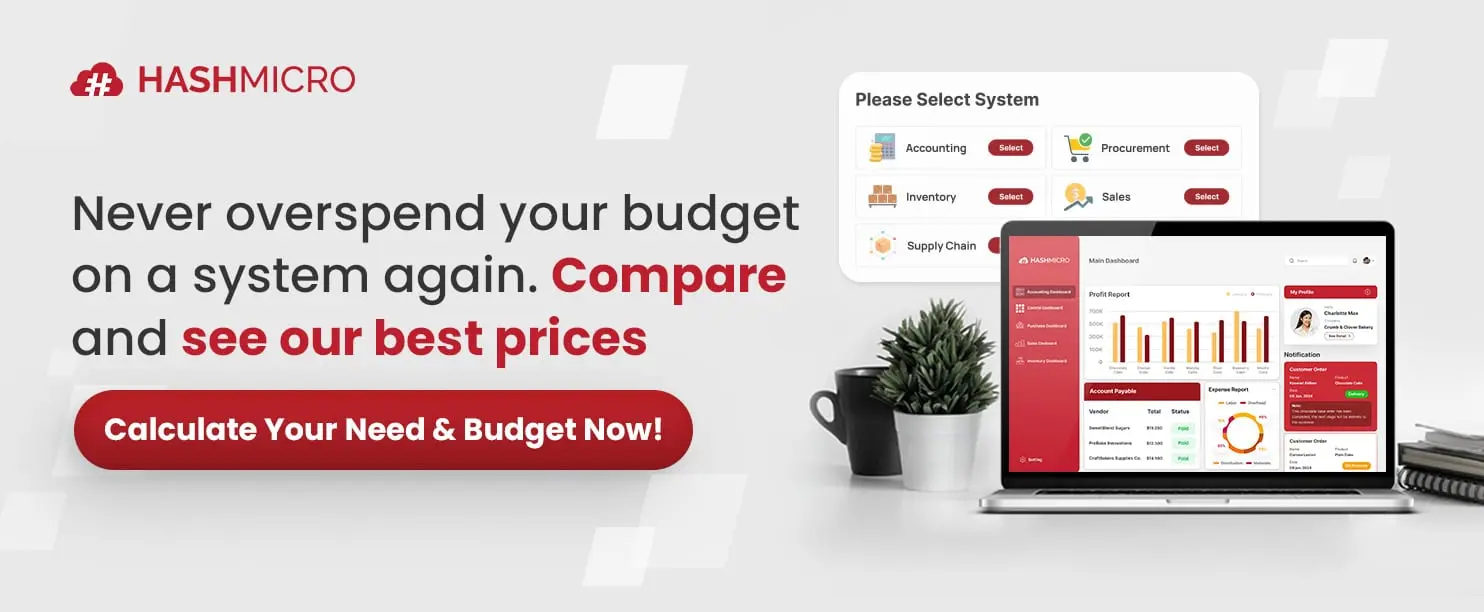A single quote can be the turning point between winning a client or losing them to a competitor. For decision-makers navigating complex sales cycles, a price quotation isn’t just a formality, it’s a strategic tool that communicates value, builds trust, and sets the foundation for a professional relationship.
However, many businesses still rely on outdated or inconsistent quoting methods, often resulting in confusion, delays, and missed revenue opportunities. This guide will walk you through the essentials of price quotations, explain why they are crucial to business success, and demonstrate how your organization can improve its quoting process with HashMicro Purchasing Software.
Continue reading to learn how you can leverage price quotations as a decisive advantage for your business.
Key Takeaways
|

What is a Price Quotation?
A price quotation is a formal document or statement provided by a seller to a potential buyer that outlines the cost of specific products or services. Quotation letter typically includes detailed information such as item descriptions, quantities, unit prices, total costs, applicable taxes, payment terms, and the validity period of the quote.
Unlike a general estimate, a price quotation is usually binding once accepted by the buyer, meaning the seller agrees to honor the quoted prices within a specified timeframe.
In many cases, a well-structured quotation can be the deciding factor for a buyer when comparing vendors. It reflects not only the pricing but also the company’s attention to detail and readiness to meet client needs.
Whether delivered digitally or in printed form, a price quotation is a crucial step in converting inquiries into confirmed sales.
Purpose of a Price Quotation
Understanding the purpose of a price quotation is essential for both buyers and sellers, as it lays the foundation for clear communication, mutual expectations, and transparent business transactions.
- Provides cost transparency: A price quotation gives the buyer a clear breakdown of costs, helping them understand what they are paying for.
- Establishes terms and conditions: It outlines payment terms, delivery timelines, and other conditions, ensuring both parties are on the same page.
- Enables informed decision-making: With detailed pricing information, buyers can compare different offers and choose the one that best fits their budget and needs.
- Acts as a formal offer: A quotation serves as a formal proposal from the seller, which can be accepted, rejected, or negotiated by the buyer.
- Helps avoid misunderstandings: Written quotations reduce the risk of disputes by setting clear expectations upfront.
Key Elements of a Good Price Quotation
A well-crafted price quotation not only reflects professionalism but also builds trust with potential clients. To ensure clarity and avoid future disputes, it’s important to include all the essential elements that define a complete and effective quotation.
- Contact information: Includes the full name, address, phone number, and email of both the seller and the client for clear communication.
- Quotation number and date: Helps with record-keeping and referencing in future correspondence or transactions.
- Detailed description of products or services: Outlines what is being offered, including specifications, quantities, or service scope.
- Pricing breakdown: Lists individual item costs, labor charges (if any), taxes, discounts, and the final total amount.
- Validity period: Indicates how long the quotation is valid to encourage timely decision-making and protect against price changes.
- Authorized signature: Shows that the quote has been reviewed and approved by the responsible party, adding credibility and accountability.
A well-structured price quotation helps you evaluate whether the solution truly fits your operational and budget needs. To see how transparent and customizable the implementation cost can be, download the whole pricing scheme using the banner below.

How to Choose the Best Template for Your Business
Choosing the right template is key to presenting your business professionally. The right design helps you save time, stay consistent, and communicate clearly with clients.
- Consider your industry needs: Choose a template that suits the nature of your business — for example, a service-based business may need a different layout than a product-based one.
- Ensure clarity and simplicity: A clean, easy-to-read design helps clients quickly understand your offer without confusion.
- Look for customizability: Opt for templates that allow you to edit elements such as branding, pricing structure, and terms to fit your specific requirements.
- Check for essential sections: Make sure the template includes key components like contact details, item descriptions, pricing, and terms & conditions.
- Assess visual appeal and branding: The template should reflect your brand identity through fonts, colors, and layout while maintaining a professional look.
- Test for functionality: Especially for digital templates, ensure compatibility with your tools (e.g., Word, Excel, Google Docs) and ease of use for quick editing and sharing.
- Read reviews or get recommendations: If you’re downloading from a platform, check user feedback to avoid poorly structured or outdated templates.
Simplify Your Price Quotation Process with HashMicro’s Automation Solutions
A price quotation is a critical component in business operations, providing clients with clear and formal details of pricing, terms, and service scope. While essential, managing quotations manually can often lead to inefficiencies and errors that slow down the sales process.
To address these challenges, HashMicro Purchasing Software offers a comprehensive price quotation system that helps businesses automate and simplify the entire quotation workflow. With a user-friendly interface and seamless integration of such procurement software, the system ensures accuracy, consistency, and faster client response.
- Integrated CRM & sales module: Sync your quotation data directly with client profiles and sales pipelines for seamless follow-ups.
- Multi-currency & tax configuration: Easily handle international clients with built-in multi-currency support and automatic tax calculations.
- Approval workflow: Set up approval hierarchies to maintain internal control before sending out quotations.
- Quotation tracking: Monitor quotation status in real time, whether it’s sent, viewed, approved, or needs revision.
Conclusion
Understanding the fundamentals of a price quotation is essential for modern businesses aiming to maintain professionalism, accuracy, and client trust. As outlined in this guide, a well-structured quotation not only clarifies pricing but also strengthens your overall sales process.
To take your quotation management to the next level, consider adopting an automated solution like HashMicro Purchasing Software. With its smart features and seamless integration, it empowers your team to work faster, reduce errors, and deliver professional quotations effortlessly.
Ready to transform the way your business handles quotations? Try HashMicro’s system with a free demo and discover how automation can streamline your operations and help you close deals more efficiently.

FAQ Price Quotation
-
How do I send a price quotation to a client?
A professional quotation should include your business name and contact details, clearly labelled as a quotation. Include a unique quotation number, the client’s details, the issue date, and a detailed list of products and services with their respective prices.
-
Is a quote the price you pay?
A quotation (or quote) is a written document that can be used in business practice to provide a price to a buyer for goods or services. Essentially, it’s written communication stating the price the seller is willing to offer and the price the buyer has to pay.
-
What is the meaning of my price quote?
A price quote is a formal document that outlines the exact cost of products or services, including specific terms and conditions of sale. It represents a seller’s commitment to honor what’s explicitly detailed in the quote and within a defined timeframe.

























